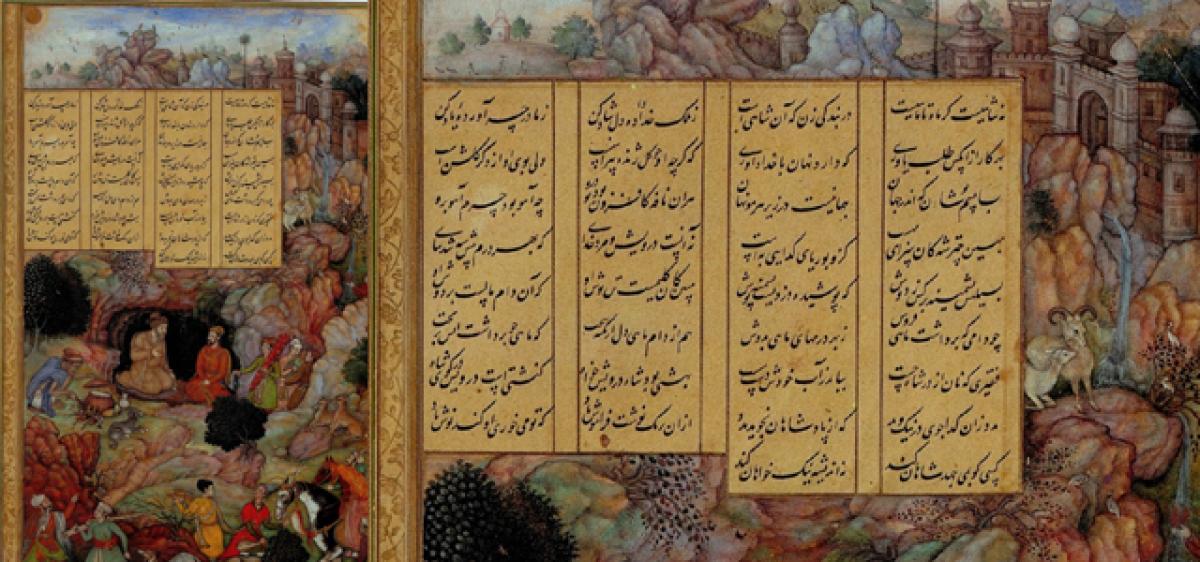Khaza’in ul-Futuh

Ab\'ul Hasan Yamīn ud-Dīn Khusrau (1253-1325) better known as Amīr Khusrau, was a Sufi musician, poet and scholar from the Indian sub-continent. He was an iconic figure in the cultural history.
Ab'ul Hasan Yamīn ud-Dīn Khusrau (1253-1325) better known as Amīr Khusrau, was a Sufi musician, poet and scholar from the Indian sub-continent. He was an iconic figure in the cultural history. He was a mystic and a spiritual disciple of Nizamuddin Auliya of Delhi. He wrote poetry primarily in Persian, but also in Hindavi. A vocabulary in verse, the Ḳhāliq Bārī, containing Arabic, Persian, and Hindavi terms is often attributed to him. Khusrau is sometimes referred to as the "parrot of India" (Tuti-e-Hind).
Khusrau wrote the Khaza'in ul-Futuh (The Treasures of Victory) recording Ala ud-Din's construction works, wars and administrative services. He then composed a khamsa (quintet) with five masnavis, known as Khamsa-e-Khusrow (Khamsa of Khusrow), completing it in 1298.
Khusrau is regarded as the ‘father of qawwali’ and pioneer of the ghazal style of song into India, both of which still exist widely in India and Pakistan. He was an expert in many styles of Persian poetry, which were developed in medieval Persia, from Khāqānī's qasidas to Nizami's khamsa. He used 11 metrical schemes with 35 distinct divisions. He wrote in many verse forms including ghazal, masnavi, qata, rubai, do-baiti and tarkib-band. His contribution to the development of the ghazal was significant.
Khusrau is credited with fusing the Persian, Arabic, Turkish, and Indian musical traditions in the late 13th century to create qawwali. The word sama is often still used in Central Asia and Turkey to refer to forms very similar to qawwali.
Amir Khusrau was a prolific classical poet associated with the royal courts of more than seven rulers of the Delhi Sultanate. His riddles are one of the most popular forms of Hindavi poetry today. It is a genre that involves double entendre or wordplay. Innumerable riddles by the poet have been passed through oral tradition over the last seven centuries. Through his literary output, Khusrau represents one of the first recorded Indian personages with a true multi-cultural or pluralistic identity.










